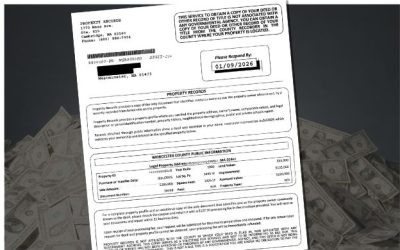
Jun 19, 2025 | Around The Home, Around The Hoome, Artificial intelligence, Buying Real Estate, Chapter 7 Bankruptcy, Consumer Tips, Credit Scoring, Fair Housing, Federal Reserve, FHFA, Financial Crisis, Financial Fraud, Financial Reports, Foreclosure, Happy Thanksgiving, Holidays, Home Building Tips, Home Buyer Tips, Home Buying Tips, Home Care, Home Care Tips, Home Closings, Home Decorating, Home Financing Tips, Home Maintenance, Home Mortgage, Home Mortgage Tips, Home Seller Tips, Home Selling Tips, Home Tips, Home Values, Homebuyer Tips, Homeowner Tips, Housing Analysis, Housing Market, Interesting Stuff, Investment Properties, Legislation, Market Outlook, Mortagage Tips, Mortgage, Mortgage Guidelines, Mortgage Lenders, Mortgage Rates, Mortgage Tips, mortgage-rates-whats-ahead-september-17-2012, News, Organization Tips, Personal Finance, Probate Law, Rankings, Real Estate, Real Estate Agent Information, Real Estate Definitions, Real Estate Tips, Real Estate Trends, Realtors, Selling Real Estate, Selling Your Home, Short Sales, Statistics, Success, Taxes, The Economy, Title Insurance
Whether you’re buying with cash, investing from abroad, transferring property to a family member, or just trying to close without a headache, you’ll want to know what can trigger federal scrutiny — and how to stay off the radar.
From flagged wire transfers and shell companies to gift-of-equity sales and land near military zones, this isn’t your average title-and-keys situation.
It’s real estate with a side of national security, tax enforcement, and financial crime prevention.
Is Big Brother Watching Your Home Sale?
What Buyers and Sellers Should Know About Federal Oversight
You’re Not Paranoid — They Might Actually Be Watching
What you didn’t know on how federal agencies keep tabs on select real estate transactions.
Your Closing Packet Could Be a Federal File
How Your Paper Trail Might Raise Red Flags — And What You Can Do About It
What the FBI, IRS, and Homeland Security
Could See in Your Closing Docs
We’re unpacking what agencies might spot inside your deal’s fine print.
Caught in the Crosshairs? What Triggers Federal Interest in Your Home Sale
The Top Red Flags That Could Invite a Closer Look from Washington
Cash, LLCs, or Land Near a Base? You Might Just Be a Target
The warning signs that put your deal on the government’s radar — and how to stay clear.
Follow the Money: How the IRS Tracks Financial Crimes Through Real Estate
From Unreported Income to Shell Game Schemes
— What IRS-CI Is Looking For
Your Closing Could Be an Audit Trigger — Here’s How the IRS Sees It
Explore the patterns, documents, and loopholes that turn ordinary deals into criminal cases.
Providing title, escrow, closing and settlement services to clients throughout Massachusetts and New Hampshire
“As a realtor, the Rocheford team went above and beyond to make sure my client was not only protected from a legal standpoint but also operated in a timely manner to execute the sale of my client’s dream home.
Thank you for the great experience for myself and my client! Looking forward to our next deal together!”
Realtor®
“I don’t usually use attorneys that often. But if an attorney is needed, I couldn’t recommend this law office enough. I always pride myself on responding quickly to emails and calls, but I was in awe of how fast paralegal Robert Heckman would respond to us. We sold our house a couple months ago and then did a two-part land swap with neighbors and my folks, and both transactions were seamless, including coming in to sign paperwork.
In short, if you need a law office that is responsive and attentive to detail, definitely consider them!”
Leominster, MA
“Excellent, conscientious and professional.
The communication throughout our Real Estate transaction was better than expected. We thought the fee to be very reasonable considering the work accomplished on our behalf. The law office handled the entire closing without us having to be in attendance….as we requested. I have had experience with very competent lawyers and law firms as the result of my previous profession. I would place this law office right up there among the best in their real estate field of expertise and surprisingly at very reasonable and affordable rates/fees.”
Buzzards Bay, MA

May 20, 2025 | Home Buyer Tips, Home Buying Tips, Home Mortgage, Home Seller Tips, Home Selling Tips, Homebuyer Tips, Homeowner Tips, Market Outlook
If you’re selling a home in New Hampshire, congratulations—you’re in the driver’s seat. The 2025 market has seen home values climb past $500,000 in many areas, with inventory tighter than a parking spot in downtown Portsmouth. According to recent reports from Zillow and Norada Real Estate Investments, limited housing stock and sustained buyer interest are giving sellers the upper hand (source).
That said, a hot market doesn’t mean an easy sale. Pricing still matters. Overestimating value can slow buyer interest and delay closings. Work with a trusted Realtor® and closing attorney to streamline the deal—and make sure your paperwork and title work are ready to go. Nothing cools momentum like an unexpected lien or missing payoff statement.
With strong demand and smart preparation, sellers can maximize value and minimize hassle in today’s competitive New Hampshire market.
Works Cited
“Housing Market Trends to Watch in 2025.” Roche Realty Group, https://rocherealty.com/housing-market-trends-to-watch-in-2025/. Accessed 19 May 2025.
“New Hampshire Real Estate Market: What to Expect in 2025?” Houzeo, https://www.houzeo.com/blog/new-hampshire-real-estate-market/. Accessed 19 May 2025.Houzeo
“New Hampshire Housing Market: 2025 Home Prices & Trends.” Zillow, https://www.zillow.com/home-values/39/nh/. Accessed 19 May 2025.Zillow+1Zillow+1
“New Hampshire Housing Market Prices and Forecast 2025–2026.” Norada Real Estate Investments, https://www.noradarealestate.com/blog/new-hampshire-housing-market/. Accessed 19 May 2025.Norada Real Estate+1Norada Real Estate+1
“Residential Real Estate Trends for 2025.” NH Business Review, https://www.nhbr.com/residential-real-estate-trends-for-2025/. Accessed 19 May 2025.NH Business Review
“New Hampshire Real Estate Trends: Market Is Hot for 2025.” WMUR, https://www.wmur.com/article/new-hampshire-real-estate-housing-market-2025/63175977. Accessed 19 May 2025.WMUR
“New Hampshire Ranks #5 in the Hottest Real Estate Markets of 2025.” Laconia Daily Sun, https://www.laconiadailysun.com/news/state/new-hampshire-ranks-9-in-the-hottest-real-estate-markets-of-2024/article_0e219b6e-df07-513b-822e-c584d2f9003c.html. Accessed 19 May 2025.The Laconia Daily Sun
“New Hampshire Housing Market Forecast for Late 2024 and 2025.” Verani Realty, https://lisetremblay.verani.com/blog/760/New%2BHampshire%2BHousing%2BMarket%2BForecast%2BFor%2BLate%2B2024%2BAnd%2B2025. Accessed 19 May 2025.lisetremblay.verani.com
“Listings Continue to Trend Downward in New Hampshire Housing Market.” NH Business Review, https://www.nhbr.com/listings-continue-to-trend-downward-in-new-hampshire-housing-market/. Accessed 19 May 2025.NH Business Review+1NH Business Review+1
“Expert Forecasts for the 2025 Housing Market.” NH Realty Gals, https://www.nhrealtygals.com/blog/expert-forecasts-for-the-2025-housing-market/. Accessed 19 May 2025.nhrealtygals.com
Providing title, escrow, closing and settlement services to clients throughout Massachusetts and New Hampshire
“As a realtor, the Rocheford team went above and beyond to make sure my client was not only protected from a legal standpoint but also operated in a timely manner to execute the sale of my client’s dream home.
Thank you for the great experience for myself and my client! Looking forward to our next deal together!”
Realtor®
“I don’t usually use attorneys that often. But if an attorney is needed, I couldn’t recommend this law office enough. I always pride myself on responding quickly to emails and calls, but I was in awe of how fast paralegal Robert Heckman would respond to us. We sold our house a couple months ago and then did a two-part land swap with neighbors and my folks, and both transactions were seamless, including coming in to sign paperwork.
In short, if you need a law office that is responsive and attentive to detail, definitely consider them!”
Leominster, MA
“Excellent, conscientious and professional.
The communication throughout our Real Estate transaction was better than expected. We thought the fee to be very reasonable considering the work accomplished on our behalf. The law office handled the entire closing without us having to be in attendance….as we requested. I have had experience with very competent lawyers and law firms as the result of my previous profession. I would place this law office right up there among the best in their real estate field of expertise and surprisingly at very reasonable and affordable rates/fees.”
Buzzards Bay, MA
Jan 4, 2023 | Market Outlook, Real Estate
As a mortgage loan professional, you know that the housing market can be unpredictable and challenging at times. But despite the ups and downs, it’s important to stay positive, motivated, and active in order to succeed. Here are a few ways to stay positive and motivated in the mortgage industry:
1. Keep learning and growing. The mortgage industry is constantly changing, and it’s important to stay up to date on new laws, regulations, and best practices. Consider taking continuing education courses or joining a professional organization to stay informed and sharp. Take advantage of opportunities such as online courses or in-person seminars, and seek out mentors or colleagues who can share their knowledge and experience. You might also consider earning additional certifications or accreditations, such as the Mortgage Bankers Association’s Certified Mortgage Banker designation.
2. Network and build relationships. Building a strong network of professionals in the mortgage industry can help you stay connected and informed about new opportunities. Attend industry events and conferences, join professional groups or associations, and participate in networking events or groups within your community. Connect with colleagues and industry professionals on social media or professional networking sites, and consider joining a mentorship program or finding a mentor to help guide your career development. Collaborating with other professionals on projects or initiatives can also help you build relationships and expand your network.
associations, and participate in networking events or groups within your community. Connect with colleagues and industry professionals on social media or professional networking sites, and consider joining a mentorship program or finding a mentor to help guide your career development. Collaborating with other professionals on projects or initiatives can also help you build relationships and expand your network.
3. Stay focused on your goals. Whether you’re working towards becoming a top loan originator or building your own mortgage company, it’s important to stay focused on your long-term goals. Identify specific, achievable goals and break them down into smaller, more manageable tasks. Set deadlines for completing each task or achieving each goal, and use a planner or project management tool to track your progress and stay organized. Celebrate small victories along the way to stay motivated, and seek feedback from colleagues or mentors to ensure you’re on track.
4. Find ways to stay energized and motivated. Working in the mortgage industry can be demanding, so it’s important to find ways to stay energized and motivated. Set aside time for activities that help you relax and recharge, such as exercise, meditation, or hobbies. Take breaks throughout the day to stretch, walk around, or get some fresh air. Prioritize self-care by getting enough sleep, eating well, and taking care of your physical and mental health. Find ways to reduce stress, such as by delegating tasks or setting boundaries, and seek support from colleagues, friends, or a professional counselor if you’re feeling overwhelmed. Consider joining a support group or seeking guidance from a mentor or coach, and find ways to stay positive and motivated, such as by setting goals, finding inspiration, or focusing on your accomplishments.
5. Remember why you got into this industry in the first place. When times are tough, it’s easy to lose sight of your passion for helping people achieve the dream of homeownership. Take a moment to remind yourself of why you got into this industry in the first place and how you can make a positive difference in your clients’ lives. Reflect on what motivates you and the positive impact you can have on your clients’ lives. Remember the satisfaction you get from assisting clients in reaching their financial goals, and keep in mind the long-term rewards of your hard work, such as career advancement or the opportunity to own your own business. Find inspiration in success stories or testimonials from satisfied clients, and focus on your strengths and the value you bring to your clients and colleagues. Find ways to give back to the community, such as by volunteering or supporting local causes related to housing or financial education.
In conclusion, staying positive, motivated, and active in the mortgage industry is key to success. By staying informed, building relationships, focusing on your goals, and finding ways to recharge, you can weather any market challenges and achieve your professional dreams.
Apr 30, 2020 | Market Outlook
 Home prices continued to grow in February according to the Case-Shiller Home Price Indices. National home prices grew at a seasonally-adjusted annual pace of 4.20 percent as compared to national home price growth of 3.90 percent in January. Case-Shiller’s 20-City Home Price Index showed higher home price growth rates in February with average annual home price growth of 3.50 percent. January home prices grew by 3.10 percent for cities included in the 20-City Index.
Home prices continued to grow in February according to the Case-Shiller Home Price Indices. National home prices grew at a seasonally-adjusted annual pace of 4.20 percent as compared to national home price growth of 3.90 percent in January. Case-Shiller’s 20-City Home Price Index showed higher home price growth rates in February with average annual home price growth of 3.50 percent. January home prices grew by 3.10 percent for cities included in the 20-City Index.
The lowest year-over-year home price growth rates were posted by Chicago, Illinois with 0.70 percent; New York City posted 1.50 percent growth, and Dallas, Texas with 2.50 percent home price growth.
Phoenix, Arizona home prices grew by a seasonally-adjusted annual rate e of 7.50 percent; Seattle, Washington home prices grew by 6.00 percent year-over-year. Tampa, Florida’s home price growth was tied with Charlotte, North Carolina’s home price growth rate of 5.20 percent. Analysts said that long-standing market conditions of high buyer demand, low inventories of available homes, and mortgage rates near record lows contributed to February’s home price growth.
Gains Across 20 City Composite
Craig Lazzara, managing director and global head of index investment strategy at S&P Dow Jones Indices, said February results “were broad-based with gains in every city in our 20-City Composite; 17 of 20 cities saw accelerating prices.”
February readings were based on home sales completed before the Coronavirus impacted the U.S. economy and government restrictions on all but essential activities reduced buyer traffic and slowed home sales. Areas supported by tourism and recreation were expected to see sharp declines in home prices and sales.
Fed Promises to Use All Remedies as Coronavirus Crisis Grows
The Federal Reserve’s Federal Open Market Committee said it would use all available tools to steady economic conditions destabilized by the Coronavirus pandemic. The FOMC said in its post-meeting statement that “The ongoing public health crisis will weigh heavily on economic activity, employment, and inflation in the near term, and poses considerable risks to the economic outlook in the medium term.”
Committee members did not change the current federal interest rate range of 0.00 to 0.25 percent and pledged to hold the Fed rate steady until the economy has weathered the public health crisis and was on track to achieve the Fed’s dual mandate of full employment and price stability.
Feb 20, 2020 | Market Outlook
 The National Association of Home Builders reported a housing market index reading of 74 in February; the index reading was one point lower than for January and was only two points below the highest reading of 76 reported in December. Readings over 50 indicate that most builders consider housing market conditions to be positive.
The National Association of Home Builders reported a housing market index reading of 74 in February; the index reading was one point lower than for January and was only two points below the highest reading of 76 reported in December. Readings over 50 indicate that most builders consider housing market conditions to be positive.
Factors contributing to builder confidence included strong housing markets and low mortgage rates; job growth and higher wages also boosted builder confidence.
Low Inventory Influences Home Prices
Low inventories of available homes continued to drive demand and rising home prices. Homebuyers faced with low supplies of existing homes turned to new home developments for additional options. First-time homebuyers faced obstacles including affordability and student loan debt that negatively impacted the ability to save for a down payment and qualify for home loans.
High costs of building materials and lots contributed to homebuilder expenses and higher home prices. Analysts noted that environmental and zoning issues also presented challenges for builders and limited their ability to meet the rising demand for affordable single-family homes.
Composite indices used to calculate the Homebuilders Housing Market Index slipped one point in each category. Builder confidence in current market conditions for newly-built single-family homes fell to an index reading of 80 and builder confidence in market conditions over the next six months dipped to 79. Buyer traffic volume in new housing developments dropped to 57, but buyer traffic readings of 50 or more were historically rare until recently.
Analysts identified correlations between the Housing Market Index and readings on consumer sentiment. The University of Michigan’s Consumer Sentiment Index and the Conference Board’s Consumer Confidence Index readings trend close to the NAHB Housing Market Index but are reported one month behind the Housing Market Index.
Regional Builder Confidence Mixed
Homebuilders reported mixed confidence in housing market conditions throughout the U.S. Market Conditions improved in the Northeast where homebuilder confidence was five points higher at 67. The Midwestern region reported a builder confidence reading of 62, which was five points lower than January’s reading. Homebuilder confidence in the South rose two points to an index reading of 79; homebuilder confidence fell four points in the West to 82.
Regional builder confidence levels reflect local economic conditions and events impacting housing markets.
Jan 31, 2020 | Market Outlook
 The Federal Open Market Committee of the Federal Reserve issued its scheduled post-meeting statement Wednesday. Policymakers unanimously decided to leave the target federal funds rate range unchanged at 1.50 to 1.75 percent.
The Federal Open Market Committee of the Federal Reserve issued its scheduled post-meeting statement Wednesday. Policymakers unanimously decided to leave the target federal funds rate range unchanged at 1.50 to 1.75 percent.
FOMC members reasserted previous views that inflation was “subdued” and the economy was growing at a moderate pace. The Fed typically bases decisions about interest rates on its dual mandate of achieving maximum employment and an annual inflation rate of 2.00 percent.
U.S. Economy Strong, Fed Chair Sees No Immediate Risk From China
FOMC cut the target interest rate range three times in 2019 to offset higher prices associated with a trade war with China, but the Committee considered recent progress in trade negotiations as an indication that there was no current need for further rate cuts. Fed Chair Jerome Powell said he was not concerned about immediate risks from China.
In its current assessment of economic conditions, the Fed cited a strong labor market and job growth but said that business investments and exports were weak. Core inflation readings, which exclude volatile food and fuel sectors, consistently ran below 2.00 percent. The FOMC changed language in its statement to indicate a goal of achieving an inflation rate of 2.00 percent; previous statements referred to an inflation goal of near 2.00 percent.
Committee members will continue to monitor current and developing economic conditions to determine when or if to change the benchmark interest rate range in future meetings.
Fed Chair: Fed Is Monitoring Potential Impact Of Coronavirus Outbreak
Concerns over trade conflicts with China were overshadowed by an outbreak of a strain of Asian influenza in China. The disease, caused by a coronavirus, is extremely contagious and spreads quickly. This could impact global economic conditions as international air travel and shipping may be limited or stopped to prevent further spread of the virus.
Fed Chair Jerome Powell said that although the Fed is not worried about an immediate threat, the FOMC members would continue to monitor how and where the current outbreak of Asian influenza spreads to determine if changes to the Fed’s monetary policy positions are necessary. Tensions in the Middle East were not mentioned in the FOMC statement or Fed Chair Jerome Powell’s post-meeting statement.














 associations, and participate in networking events or groups within your community. Connect with colleagues and industry professionals on social media or professional networking sites, and consider joining a mentorship program or finding a mentor to help guide your career development. Collaborating with other professionals on projects or initiatives can also help you build relationships and expand your network.
associations, and participate in networking events or groups within your community. Connect with colleagues and industry professionals on social media or professional networking sites, and consider joining a mentorship program or finding a mentor to help guide your career development. Collaborating with other professionals on projects or initiatives can also help you build relationships and expand your network. Home prices continued to grow in February according to the Case-Shiller Home Price Indices. National home prices grew at a seasonally-adjusted annual pace of 4.20 percent as compared to national home price growth of 3.90 percent in January. Case-Shiller’s 20-City Home Price Index showed higher home price growth rates in February with average annual home price growth of 3.50 percent. January home prices grew by 3.10 percent for cities included in the 20-City Index.
Home prices continued to grow in February according to the Case-Shiller Home Price Indices. National home prices grew at a seasonally-adjusted annual pace of 4.20 percent as compared to national home price growth of 3.90 percent in January. Case-Shiller’s 20-City Home Price Index showed higher home price growth rates in February with average annual home price growth of 3.50 percent. January home prices grew by 3.10 percent for cities included in the 20-City Index. The National Association of Home Builders reported a housing market index reading of 74 in February; the index reading was one point lower than for January and was only two points below the highest reading of 76 reported in December. Readings over 50 indicate that most builders consider housing market conditions to be positive.
The National Association of Home Builders reported a housing market index reading of 74 in February; the index reading was one point lower than for January and was only two points below the highest reading of 76 reported in December. Readings over 50 indicate that most builders consider housing market conditions to be positive. The Federal Open Market Committee of the Federal Reserve issued its scheduled post-meeting statement Wednesday. Policymakers unanimously decided to leave the target federal funds rate range unchanged at 1.50 to 1.75 percent.
The Federal Open Market Committee of the Federal Reserve issued its scheduled post-meeting statement Wednesday. Policymakers unanimously decided to leave the target federal funds rate range unchanged at 1.50 to 1.75 percent.